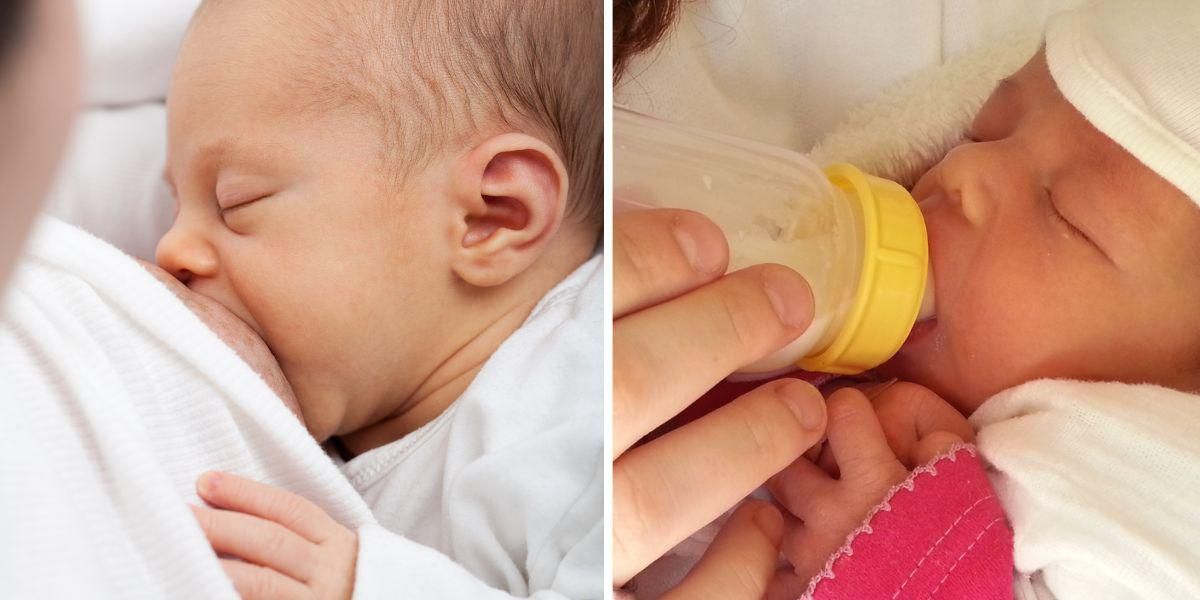
By now, you’ve likely seen news stories about the baby formula shortage in the U.S. According to CBS News, the formula shortage has been coming for months, with supply chain issues, labor shortages, product recalls and inflation creating a perfect storm and hampering manufacturers’ ability to keep up with demand.
The shortage is causing intense stress for families that rely on formula as retailers resort to rationing purchases and customers find store shelves empty of major brands.
It’s genuinely a crisis. And unfortunately, some breastfeeding advocates are using the shortage to tout the benefits of breastfeeding: This isn’t a problem if you breastfeed! It’s “free!” It’s “readily available!” It’s nature’s perfect food! It’s “what God intended!” It’ll never be recalled!
Folks? Now is not the time or the place.
To be clear, I’m an enormous fan of breastfeeding. My mother is a retired lactation consultant and I was raised in La Leche League meetings. I breastfed my own three kids through toddlerhood and pumped breastmilk to feed my adopted nephew. I’ve written articles and made videos defending breastfeeding in public. I am enamored with the miraculous way our bodies can grow a whole person and also create food for that person. It’s amazing. Breastfeeding is awesome in my book.
But I also live in the real world. I know that breastfeeding doesn’t always work out for a huge variety of reasons, none of which I have the authority to judge. I know how most moms agonize over every decision they make and how easy it is to feel shamed for not doing what people tell you is “best.” I know that baby formula saves lives.
For years now, there’s been a slogan battle between “breast is best” and “fed is best,” when really neither statement is really accurate. The “breast is best” idea is a simple way of stating that breast milk is the most nutritionally beneficial food for most babies. That’s not a judgment; it’s the medical consensus. The “fed is best” idea is a simple way of stating that the most important thing is that a baby is fed. That’s not a dismissal; it’s reality. But neither statement encompasses the complex truth, which is that there’s a lot of bad information out there that makes informed decisions difficult and that there are millions of individual circumstances that can impact how a baby ultimately gets fed.
However, none of that matters when there’s a baby formula shortage. Babies that rely on formula need it. And they need it immediately. Period.
Now is not the time to advocate for breastfeeding, no matter how passionate you feel about it. Parents impacted by the formula shortage are already worried enough; adding to their stress with messaging that might induce guilt or shame is an entirely crappy thing to do at this moment. It’s like saying to someone who fell off a boat and is floundering in the water, “See, this is why people should learn to swim.” That’s not advocacy—it’s cruelty.
I know that some people will take any and all mention of breastfeeding as a slam on formula feeding, and I’m not of the mind that people should avoid talking about the benefits of breastfeeding in general. But there are times and places for advocacy and education and there are times and places where it’s not helpful at all. We’re in the latter time and place right now. This formula shortage might naturally push some new moms toward breastfeeding, but it’s not a situation that should be exploited to convince people to breastfeed.
If we want to be helpful, the best thing we can do at the moment is to offer advice and support that may actually help. Dr. Steven A. Abrams, MD, a Fellow of the American Academy of Pediatrics, suggests the following when a parent is in an urgent need situation. These are things we can help with:
- Talk with your pediatrician and ask if they are able to get you a can from the local formula representatives or one of the charities that has some. Your local WIC office may also be able to suggest places to look.
- Check smaller stores and drug stores, which may not be out of supply when the bigger stores are.
- If you can afford it, buy formula online until store shortages ease. Purchase from well-recognized distributors and pharmacies rather than individually sold or auction sites. Do not import formula from overseas, as imported formula is not FDA-reviewed.
- For most babies, it is OK to switch to any available formula, including store brands, unless your baby is on a specific extensively hydrolyzed or amino acid-based formula such as EleCare (no store brand exists). Ask your pediatrician about recommended specialty formula alternatives available for your baby.
- Check social media groups. There are groups dedicated to infant feeding and formula, and members may have ideas for where to find formula. Make sure to check any advice with your pediatrician.
